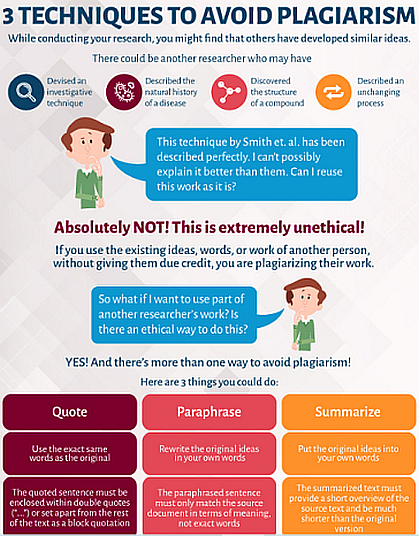Question e-mailed by a Forum member whom I’ll identify only as MH (May 20, 2013):Hi! Is it considered dishonesty if I cite a book, journal, etc., in my bibliography without really having seen the actual material but just read it in the Internet? For example, author A cited in his bibliography the book of Author B about innovation. Then, I just Googled author B and cited in my reference his book. Is this in any way being dishonest?
My reply to MH:Your question is a very sensitive one that needs a highly nuanced answer, and I will presume here that the question is purely a hypothetical one. We have to begin by clarifying what the term “actual material” means in the context of your question. As you know, in the Internet age, some books now come in the form of e-books, which are books composed in or converted to digital format for display on a computer screen or handheld device. The content of a legitimate e-book—meaning one that’s published, distributed, and sold by a reputable publisher—is exactly the same as that of the traditional edition printed on paper; the only difference is the form by which the reader is able to access and read the content. And, of course, some of these e-books or portions of them end up being posted on the web with or without the consent of the author or publisher. From an information-delivery standpoint, however, it makes no difference whether you read the paper edition or e-book edition of any form of intellectual property like, say, a reference book or a work of fiction or nonfiction. The only thing you need to ensure is that you have read the authentic work or the part of it that you are using as a reference.

Now let’s examine your example of the book on innovation by Author B that was cited by Author A in his bibliography. Hypothetically, you say that you just Googled author B and then cited his book as a reference in your own written work. If what you found through Google and subsequently read is Author B’s book on innovation in an e-book or digital form, or at least the actual chapter or authentic part of that book referred to in your own work, then citing Author B’s book as your reference is a perfectly legitimate and honest act. This is particularly the case when you referred to a particular author or work in a curated website like, say, the Perseus Digital Library (
http://www.perseus.tufts.edu/hopper/), where you can read free of charge the authentic texts of a plethora of books on the history, literature, and culture of the Greco-Roman world (including the whole portfolio of William Shakespeare’s works). However, if all you did was Google the name of Author B and then read his biography on Wikipedia simply to check that he had actually written the book on innovation cited by Author A, and if you actually had not read that book or an authentic part of it that you referred to in your written work, then I think it’s intellectually dishonest to make that reference to Author B’s book on innovation. It’s not enough to go through the motions of Googling Author B simply as a salve to a guilty conscience. Indeed, this form of intellectual dishonesty should be scrupulously avoided by every self-respecting netizen.